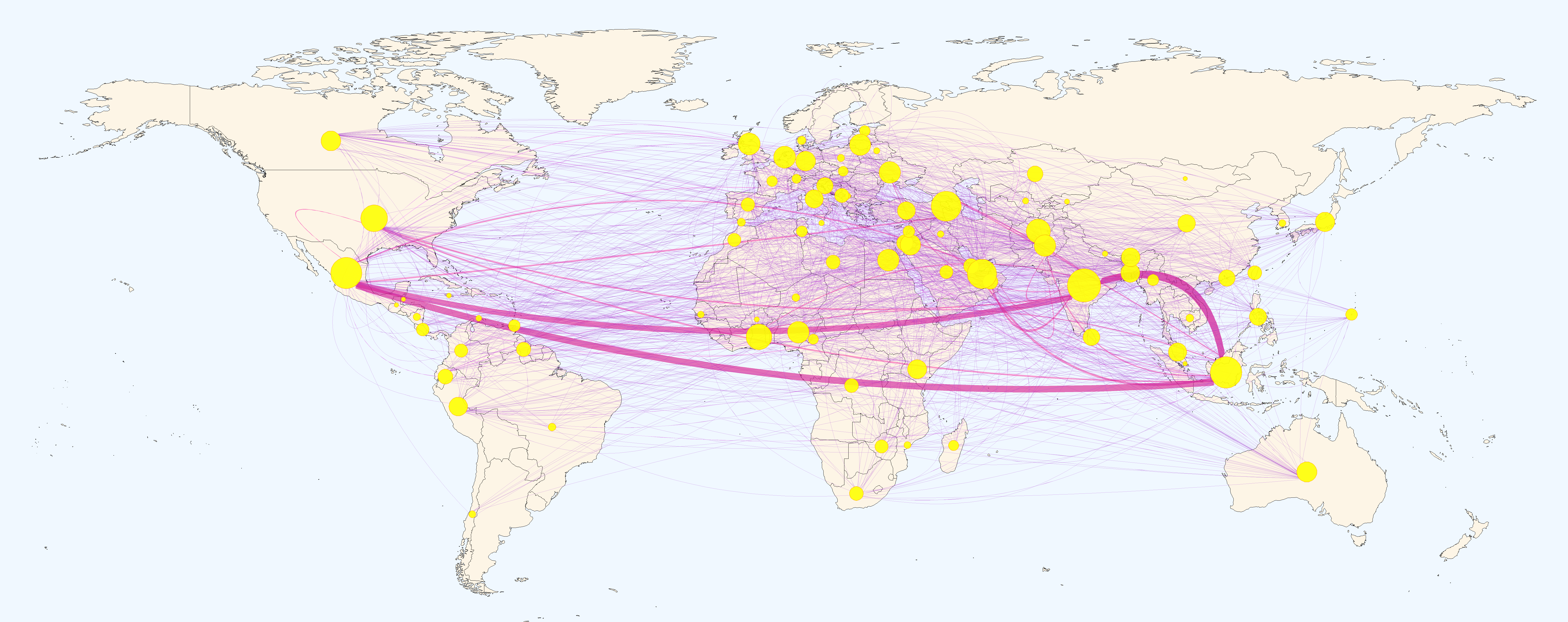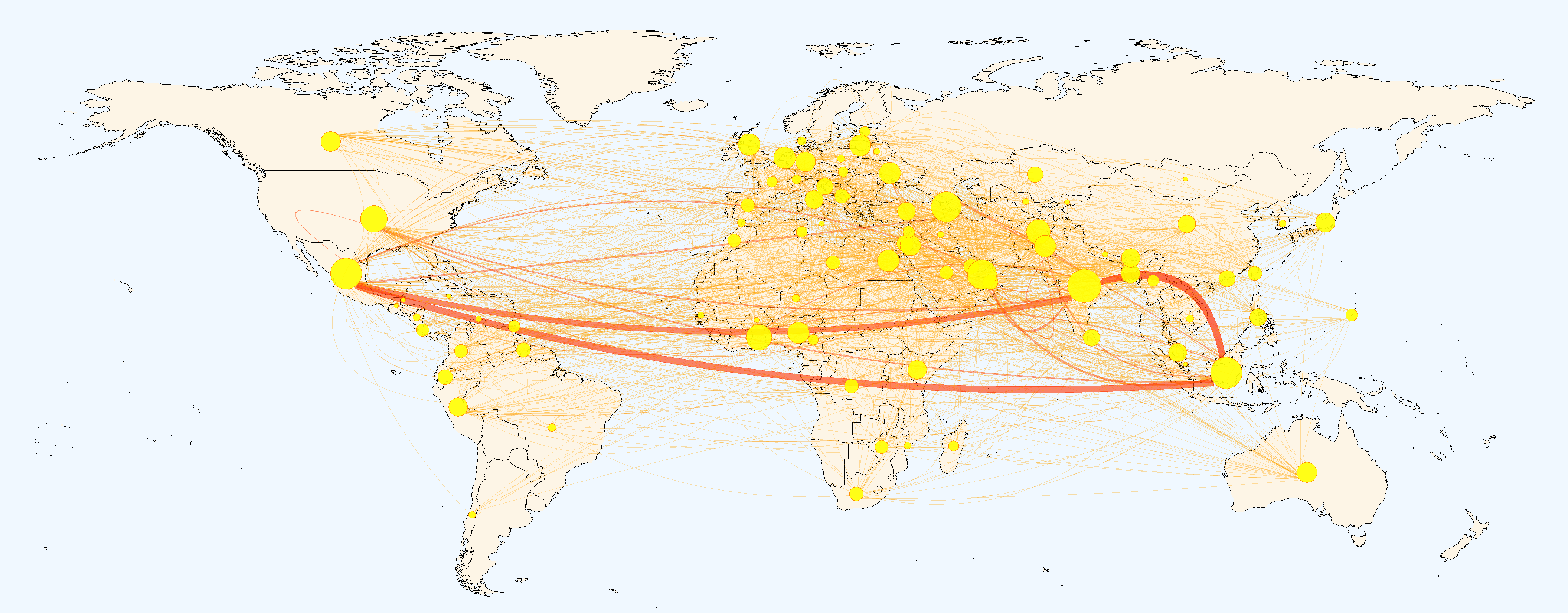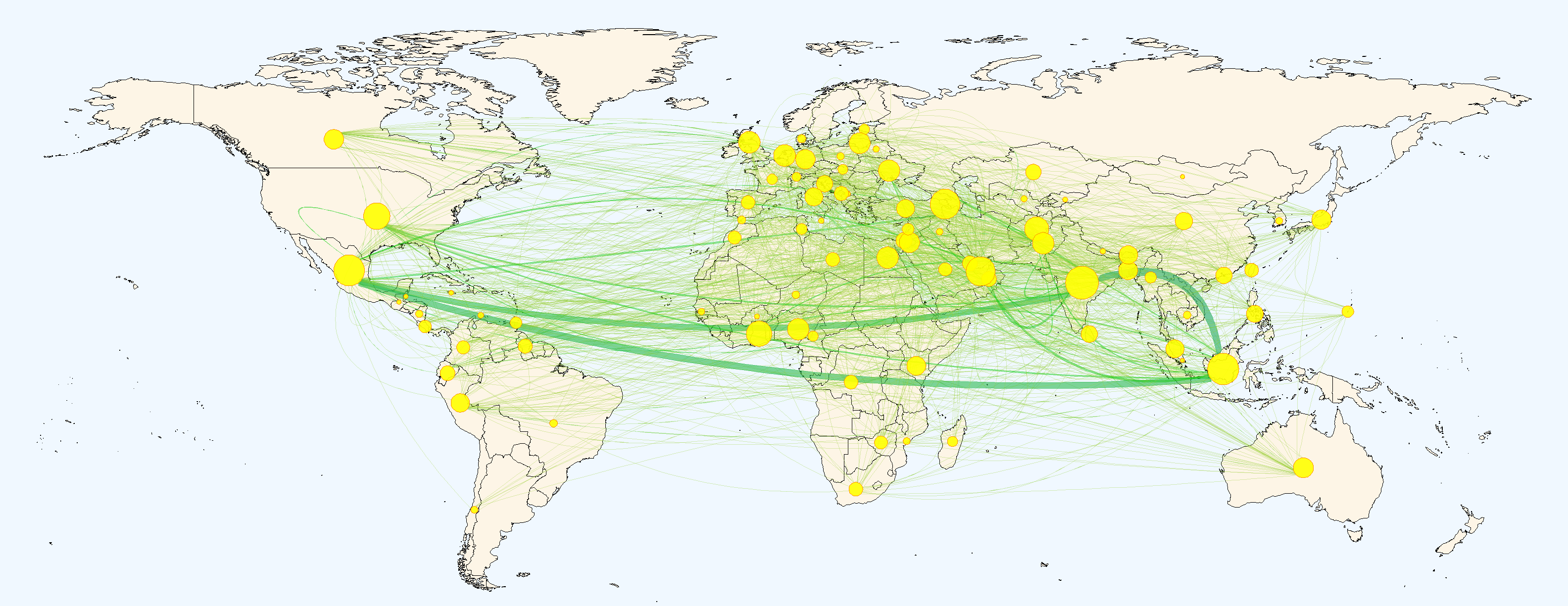The Power of Intercultural Connection – engaging in dialogue across boundaries
Young people today have grown up in a world that is more inter-connected than ever before. Yet, according to classroom data from PISA and the OECD, almost half of the population still lacks minimum global competence, defined as “the capacity to examine local, global and intercultural issues, to understand and appreciate the perspectives and world views of others, to engage in open, appropriate and effective interactions with people from different cultures”.[1],[2] Intercultural awareness, knowledge, and global communication skills are essential for navigating an increasingly globalised world – skills which can be developed through intercultural interaction.
However, there are significant barriers to intercultural interaction, as for many this requires travelling beyond our immediate communities. In recent years, the COVID-19 pandemic has halted international exchanges, significantly limited access to international travel, and exacerbated a digital divide between students who had access to technology and the internet at home, and those that did not. But beyond the pandemic, there are also socio-economic and cultural barriers to accessing travel to different places and cultures. According to the Pew Research Centre, 48% of Americans earning less than 30,000 a year have not left the country, compared with only 10% earning 80,000 or more, while only 7% of those with a college degree have not travelled abroad, compared to 37% without.[3] Meanwhile, in Africa, 60% of young people haven’t travelled within the continent, let alone outside of it.[4] Millions of young people do not have access to the immersive experience of travel abroad, so how can they gain access to intercultural connection?
Generation Global, an education programme of the Tony Blair Institute, provides young people with the opportunity to access intercultural connection without the necessity of physical travel. The programme is based on the idea that intercultural dialogue is at the heart of meaningful human connections and young people’s ability to authentically engage as global citizens. Dialogue, in this context, is seen as a way of communicating that is not about looking for the right answer or even finding solutions to problems, but rather, about understanding one another and celebrating our differences.
A foundational benefit of intercultural interaction is the opportunity to engage in dialogue with people from different cultural and linguistic backgrounds, supporting language acquisition and intercultural communication skills. There is substantial evidence to demonstrate how immersion can contribute to language learning. For example, a study of the Georgetown Consortium Project found that those who studied abroad made more progress in oral proficiency than the control students studying the same languages in U.S. classrooms.[5]
At Generation Global, a safe online space is provided for global peers to interact, predominantly in English, creating opportunities beyond the classroom for learners to advance their intercultural communication and language skills. Language learning is not a linear process. Learning to interact across languages and cultures – verbally or non-verbally – can be useful in creating a non-judgemental immersive environment to take in new information, which can subsequently accelerate language acquisition. Language and culture are inextricably linked, and therefore providing an opportunity for learners to engage with language, phraseology, and concepts from other cultures goes hand in hand with intercultural learning, as a building block for deeper intercultural connection and understanding.

Beyond language proficiency, exposure to intercultural connection increases knowledge of different experiences and backgrounds. Global communication skills or "Intercultural Communicative Competence" should be included in curricula for young people to develop an awareness of the self, their culture, and other cultures.[6] Given the importance of these skills, Generation Global, alongside programmes such as Soliya Connect Programme, and Global Nomads, follow this philosophy regarding the importance of intercultural connection. These programmes facilitate interpersonal communication between learners from different national and cultural backgrounds, with the goal of providing a space for young people to learn about one another’s cultures and perspectives.
Generation Global Dialogue Facilitator, Natalia, highlights that the benefit of intercultural connection can be as simple as gaining more understanding of context. She recalls how in one video conference between learners from Mexico and Ukraine, Mexican students gained understanding of the geographical setting of Ukraine, having previously believed it to be in a tundra! In 2022, through Generation Global's digital dialogue platform, the Ultimate Dialogue Adventure, young people connected with peers from an average of 6 different countries across 3 continents, virtually traveling 45,365 kilometres in video conferences and online dialogue interactions. By acting as a bridge that breaks geographical boundaries, the programme facilitated the development of intercultural knowledge and awareness, which might have been challenging to achieve otherwise.


As young people learn to communicate more effectively with their global peers, gaining insights into their backgrounds, cultures, and beliefs, they encounter perspectives they may not have previously considered. This process empowers them to challenge preconceptions about other cultures and backgrounds, finding common ground within their shared human experience. Building these relationships contributes to developing cross-cultural empathy. One study of virtual exchanges found that students who experience “global interaction,” or intercultural connection, are more likely to identify as Global Citizens, value diversity and social justice higher, and be more willing to help others from different backgrounds.[7]
Another Dialogue Facilitator at Generation Global, Somaya, shared an inspiring anecdote of a recent video conference between students from India and the Philippines. In this dialogue, both groups were surprised by how much they had in common, leading to an enhanced understanding of other communities. These dialogues provide a unique opportunity for young people to connect and discover common ground, upon which we can build empathy, understanding and tolerance.
Greater intercultural empathy and understanding in the world could lead to enhanced social cohesion and tolerance towards diversity. The Council of Europe has stated that “intercultural dialogue contributes to political, social, cultural and economic integration and the cohesion of culturally diverse societies”, acting to promote “equality, human dignity and a sense of common purpose”.[8] Increasing youth access to intercultural dialogue could act to promote peacebuilding and conflict resolution in the long-term, as future generations foster skills which allow them to bridge political, cultural and ideological divides.
This all drills down to the belief in the monumental impact that human connection can have. Today, young people have access to connection in many different forms – from Twitter to television. Providing them with the skills they need to navigate this evolving environment is paramount. With a safe dialogical space, such as that of the Generation Global programme, young people across cultures can learn from each other, work together to tackle social issues, and build a more tolerant, collaborative, and open world.
Check out our interactive visual on intercultural connections on the Ultimate Dialogue Adventure!
[1] UNESCO: Global Education Monitoring Report: Monitoring SDG 4: Global citizenship education
[2] OECD, PISA 2018 Global Competence, 2018
[3] Silver, Laura, Most Americans have travelled abroad, although differences among demographic groups are large, Pew Research Centre, 2021
[4] Statista, Number of countries in Africa visited by young Africans as of 2021, 2021
[5] Vanden Berg, M. J., Connor-Linton, J., & Paige, R. M., The Georgetown consortium project: Interventions for student learning abroad. Frontiers: The Interdisciplinary Journal of Study Abroad, 18, 1-75, 2009
[6] Chawansky, M., & Torres, C. A., The importance of global experiences for youth: Intercultural competence and its impact on young people. Journal of Extension, 2009
[7] Evans, K., & Suggate, J., Youth participation in international exchange programs: Implications for intercultural learning and global citizenship education. Journal of Research in International Education, 2009
[8] Council of Europe, White Paper on Intercultural Dialogue: Living Together as Equals in Dignity, 2008
